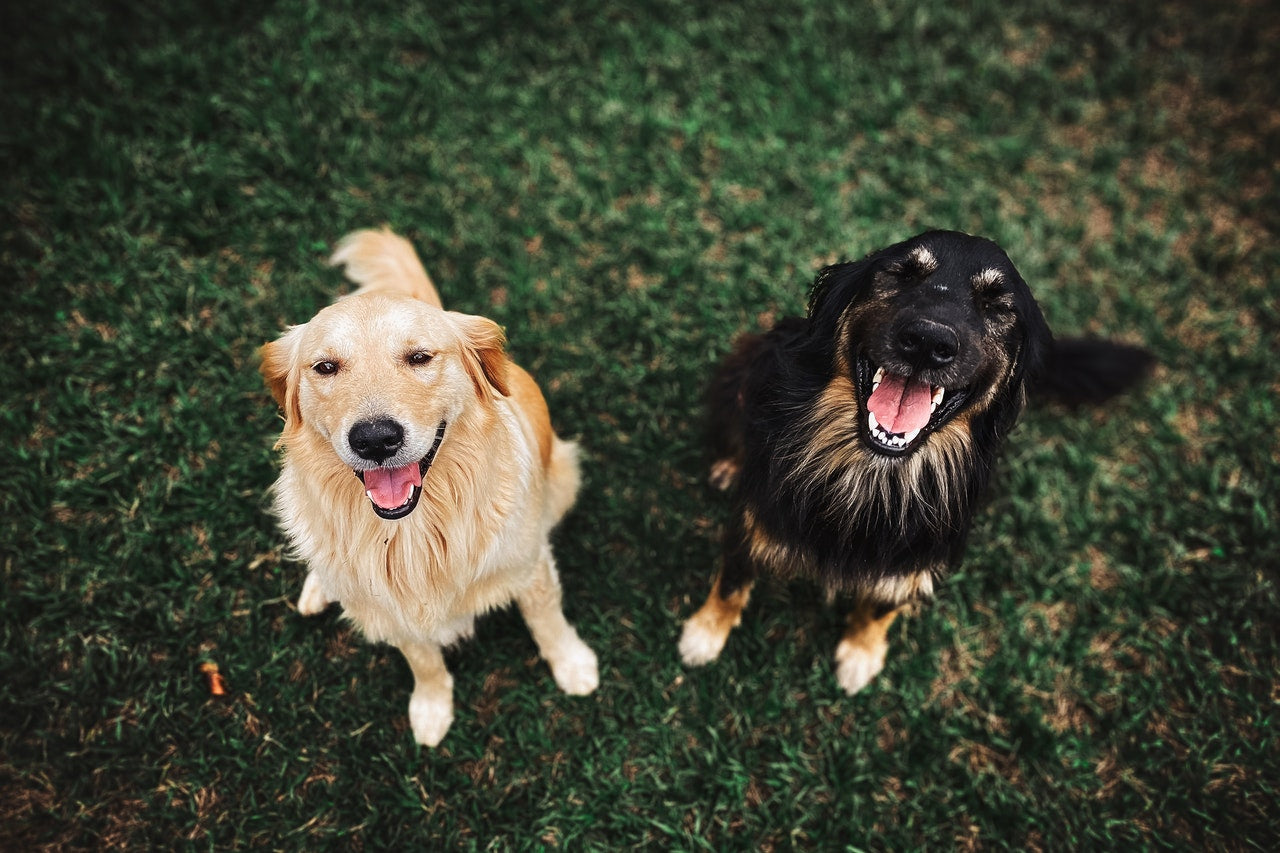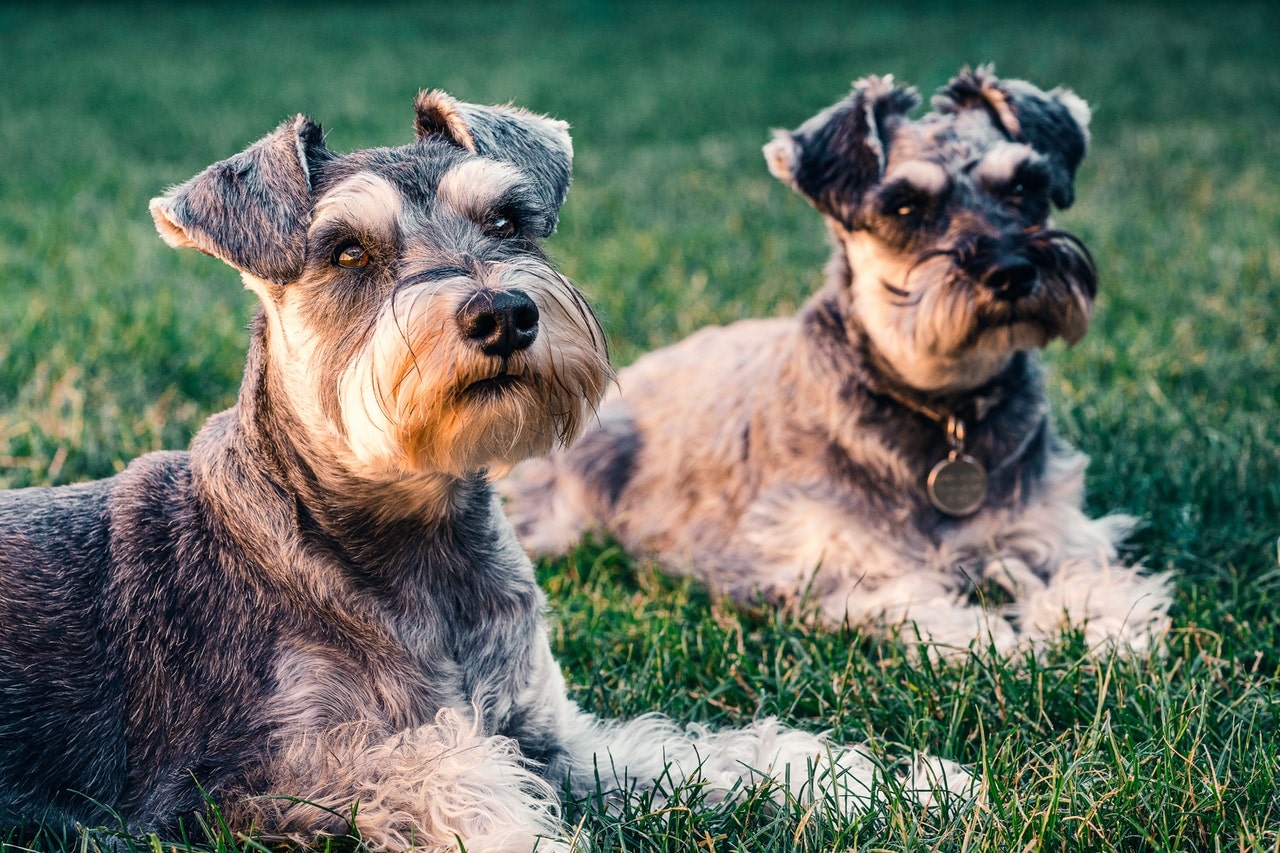Can coconut oil kill the coronavirus and influenza virus?
Coconut oil has long been known for its antiviral, antibacterial, antifungal, and antimicrobial properties, and there's plenty of scientific research to support this. In one well-known study, researchers discovered that HIV/AIDS patients who took coconut oil daily had substantially decreased viral loads. In a separate study, researchers found that Lauric Acid (and its derivative monolaurin) in coconut oil can kill viruses, bacteria, and fungi.
Since coconut oil is known for its powerful antiviral properties, can it kill the coronavirus and influenza virus? In today's post we'll explore the evidence. But first, let's take a look at how to protect your pets during the COVID-19 pandemic.
What Is COVID-19?
Today, we're facing a worldwide pandemic caused by a microscopic virus known as a coronavirus. But what exactly are coronaviruses, and what is COVID-19? According to the World Health Organization (WHO):
"Coronaviruses are a large family of viruses which may cause illness in animals or humans. In humans, several coronaviruses are known to cause respiratory infections ranging from the common cold to more severe diseases such as Middle East Respiratory Syndrome (MERS) and Severe Acute Respiratory Syndrome (SARS). The most recently discovered coronavirus causes coronavirus disease COVID-19."
COVID-19 stands for coronavirus disease of 2019. The virus that causes the disease is designated "severe acute respiratory syndrome coronavirus 2" (SARS-CoV-2). It emerged in the city of Wuhan, China, in late 2019 and has since spread worldwide. Scientists are still unsure how the virus was transmitted to humans, but it is thought to have originated in bats. The spread of the virus has caused total upheaval in all facets of our lives – our health, healthcare, business, and the economy. Now, the world’s leading scientists are racing to find a vaccine to help prevent and treat COVID-19.

Protecting Your Pets Against COVID-19
Many pet owners are worried about their pets during the pandemic, but the good news is there's currently no evidence that pets can contract or spread COVID-19. According to the Centers for Disease and Control and Prevention (CDC):
"There is no reason at this time to think that any animals, including pets, in the United States might be a source of infection with this new coronavirus that causes COVID-19. To date, CDC has not received any reports of pets or other animals becoming sick with COVID-19 in the United States."
But what about the two dogs in Hong Kong that appear to have contracted low-grade COVID-19 infections? Health experts in Hong Kong believe it is highly likely that these cases are examples of human-to-animal transmission. What's more, neither of the dogs displayed symptoms of COVID-19.
The current evidence suggests that pets are unlikely to get or give COVID-19. However, it may be possible for your pet to become a carrier if they come into contact with virus particles. For this reason, make sure to practice good hygiene around your pets. It's especially important to clean up after your pets properly and wash your hands thoroughly after touching them.
It’s important to note that with ongoing research and development regarding animals, official recommendations regarding animals and human transmission may change almost daily. Please check the Centers for Disease and Control Prevention’s “If You Have Animals” page for the latest information.
In the next section of the post, we'll take a look at the science behind how coconut oil kills viruses. Later, we'll share some practical tips for using coconut oil to help protect your family and pets against viral infection.
How Does Coconut Oil Kill Viruses?
So, how exactly does coconut oil kill viruses? Let's take a look at the science. Coconut oil contains different types of medium-chain fatty acids (MCFAs), each responsible for various health benefits. The most abundant of these is the "super ingredient" Lauric Acid. Lauric Acid is converted into a molecule called monolaurin in the body, which destroys the lipid membrane of viruses, bacteria, and fungi. Dr. Mary Enig, a Ph.D. nutritionist/biochemist and one of the world's leading authorities on fats and oils, explains:
"Lauric Acid in coconut oil is formed into monoglyceride monolaurin in the human or animal body. Monolaurin is the antiviral, antibacterial, and antiprotozoal monoglyceride used by the human or animal to destroy lipid coated viruses such as HIV, herpes, cytomegalovirus, influenza, various pathogenic bacteria including listeria monocytogenes and helicobacter pylori, and protozoa such as giardia lamblia. Some studies have also shown some antimicrobial effects of Lauric Acid."
Using coconut oil as a possible antiviral agent against COVID-19 was first studied by Dr. Fabian Dayrit of the Ateneo de Manila University, and Dr. Mary Newport of Spring Hill Neonatology, Inc. in their research titled “The Potential of Coconut Oil and its Derivatives as Effective and Safe Antiviral Agents Against the Novel Coronavirus (nCoV-2019)” published on Jan. 31, 2020.
As we mentioned at the beginning of this post, there are plenty of scientific studies to back up these claims. Let's take a brief look at another example. In a 2015 study, researchers tested a monolaurin vaginal gel in female primates. The results showed that daily doses of the gel reduced the risk of the primates contracting SIV (the primate equivalent of HIV). This means that the monolaurin in the gel effectively protected the primates against viral infection.
These results suggest that coconut oil could prove effective against the influenza and SARS-CoV-2 viruses. In light of these studies, the Department of Science and Technology (DOST) in the Philippines, in conjunction with the University of the Philippines - Philippine General Hospital (UP-PGH), will be conducting clinical studies on how virgin coconut oil can be used as treatment for the novel coronavirus disease (COVID-19).
Using Virgin Coconut Oil and MCT-3 Oil to Help Support and Protect You and Your Pets
CocoTherapy Virgin Coconut Oil contains high levels of Lauric Acid – at least 53% (compared to an average of 45% in grocery store brands). Numerous scientific research studies have demonstrated that Lauric Acid has the ability to kill viruses and reduce the viral load in the body. CocoTherapy TriPlex MCT-3 Oil contains high levels of Caprylic and Capric acids, both of which are proven to have powerful antiviral and antifungal effects.
It's important to note that studies on treating COVID-19 patients with virgin coconut oil are still in progress, and to date, the FDA has not approved claims regarding virgin coconut oil or MCT-3 oil as a treatment or "cure" for COVID-19. However, the MCFAs in virgin coconut oil have been scientifically proven to kill various viruses, bacteria, fungi and other microbes. In addition to this, virgin coconut oil is a proven immune supportive supplement that can be taken as a prophylactic measure.
Based on the scientific studies that virgin coconut is antiviral and contains proven immune support, it can be reasonably hypothesized that the actions of these MCFAs (Lauric, Caprylic, and Capric Acids) in the body may play a significant role in protecting against illnesses due to viruses. And although the theory that coconut oil as a cure for COVID-19 has not yet been established by the scientific and medical communities, it is a very safe addition to your pet's diet as adjunctive therapy and a natural supplement to help keep you and your pets healthy.
Here are ways we use these products on both ourselves and our pets for added immune support:
1. Consume daily. Add CocoTherapy Virgin Coconut Oil and MCT-3 Oil to your pets' food. We suggest giving MCT-3 Oil in the morning for fast energy support and brain health. Give Virgin Coconut Oil in the evening for high Lauric Acid, sustained blood ketone levels overnight, and extra immune support.
2. Apply Virgin Coconut Oil or MCT-3 Oil on paws, exposed skin, and even fur for added protection. We rub a little bit of oil in our palms, and rub the oil onto our dogs' fur and paws when we go out for walks.
3. When coming back indoors, clean your dog's paws with soap and warm water. Apply fresh Virgin Coconut Oil or MCT-3 Oil onto their paws. It's a great moisturizer for cracked, dry paws.
4. Clean your dog or cat's teeth with Virgin Coconut Oil. Using a clean gauze, gently rub the oil onto your pet's teeth and gums.
5. Clean any wounds, cuts, scrapes, or yeasty ears with Virgin Coconut Oil. It's a fantastic antibacterial and antimicrobial agent.
6. For humans, rub Virgin Coconut Oil or MCT-3 Oil onto your hands as a moisturizer before going out. This will add a protective lipid barrier to your skin.
7. Gargle and “swish” with Virgin Coconut Oil daily for oral health, soothe sore throat, and minimize oral microbes in the mouth. Gargle 1 TBSP coconut oil then spit remains in the trash. Then with fresh oil, swish another 1 TBSP of oil in your mouth for at least 5 minutes (or longer if possible). Note: Do not expel the coconut oil in the sink; always expel in the trash.
Make Your Own Hand Sanitizer
You can also make your own hand sanitizer with CocoTherapy TriPlex MCT-3 Oil, using a rough blend of 3 parts MCT-3 Oil and 7 parts alcohol.
Example
- 2/3 cup 90-99% rubbing alcohol (isopropyl alcohol)
- 1/3 cup MCT-3 oil
Instructions
- Combine all ingredients and shake well.
- Place in a small spray bottle.
- Shake well before each use.
We recommend using 90-99% isopropyl alcohol. If you use 70% alcohol, use more alcohol and less MCT-3 Oil (although this may be harsher on your hands).
Other optional ingredients
- Aloe Vera gel to soothe skin
- Essential oils to add scent
The essential oil you choose may also help protect you against germs. For example, thyme and clove oil have antimicrobial properties.
Protecting your hands
Alcohol dries the skin and strips protective oils. Follow up hand sanitizing (or hand washing) by applying Virgin Coconut Oil to keep skin in top shape. Damaged skin has tiny cracks that trap bacteria and viruses and make them harder to remove. If you have sensitive skin, try to keep the amount of alcohol in your hand sanitizer around 60-70%. A higher concentration may cause irritation.
We hope you enjoyed today's post, and learned some useful tips for protecting your pets and family. Please stay safe during the pandemic, and remember to familiarize yourself with official advice from the CDC.





